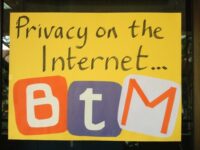Appeared in the Toronto Star on May 24, 2014 as What if the CBC Really Put Everything Up for Review The future of broadcasting has emerged as a hot issue with Canada’s broadcast regulator effectively putting everything up for grabs as part of its comprehensive TalkTV review of broadcasting regulation. […]
Archive for May, 2014
In Defence of the Government Tracking Social Media Activity
For most of the past decade, many people concerned with digital rights have used the Internet and social media to raise awareness in the hope that the government might pay closer attention to their views. The Canadian experience has provided more than its fair share of success stories from copyright reform to usage based billing to the Vic Toews lawful access bill. Yet in recent weeks, there has been mounting criticism about the government’s tracking of social media. This post provides a partial defence of the government, arguing that it should be tracking social media activity provided it does so for policy-making purposes.
The controversy started with news that the Privacy Commissioner of Canada has written to the government to express concern that an increasing number of government institutions are collecting publicly available personal information from social media sites such as Facebook and Twitter. The initial report generated considerable media attention with claims that the activity may violate the Privacy Act (or at least the spirit of the legislation).
Last week, Treasury Board President Tony Clement told Jesse Brown that the collection was largely in aggregate form to track public sentiment and that a full review of current practices would be undertaken. However, a later report demonstrated that government officials tracking Bill C-30 (the earlier lawful access bill) did identify specific Twitter users and their tweets (many internal documents I’ve obtained under Access to Information suggest that the Public Safety officials have been exceptionally defensive about lawful access and often seem to drift away from a balanced position).
Canada Ratifies WIPO Internet Treaties
Canada has formally ratified the WIPO Copyright Treaty and the WIPO Performances and Phonograms Treaty. The ratification was a key part of the copyright reform process, leading to contentious debate over the Canadian approach to providing legal protection for digital locks. The treaties will enter into force on August 13, […]
From Toews to Todd: The Unravelling of the Government’s Lawful Access Sales Strategy
As criticism of Bill C-13 mounts, the government’s sales strategy for its latest lawful access bill is starting to unravel. Many will recall the immediate, visceral opposition to Bill C-30, the last lawful access bill that started with then-Public Safety Minister Vic Toews declaring the day before introduction that Canadians could either stand with the government or with the child pornographers. The bill never recovered as Toews’ divisive remarks placed the spotlight on the warrantless disclosure provisions and the lack of privacy balance. Within ten days it was on placed on hiatus and formally killed a year later.
While the government has removed some of the most contentious elements from Bill C-30, many privacy concerns remain (immunity for voluntary disclosure, metadata). Indeed, it appears that its primary takeaway from the last legislative failure – an incredibly rare moment in the life of a majority government – was that it was a botched sales job. So despite a promise not to bring back lawful access legislation, it did so months later, this time armed with a new marketing strategy. Bill C-13 was framed as a cyber-bullying bill and its primary sales people were presumably supposed to be the victims of cyber-bullying and their parents.
The turning point on Bill C-13 came ten days ago when they appeared before the Justice Committee studying the bill. Carol Todd, the mother of Amanda, led off and courageously insisted that the government stop using her child’s name to undermine privacy:
Girl Geeks Toronto: Who’s Watching Whom? Michael Geist Examines Internet Privacy & Surveillance
At a talk hosted by Girl Geeks Toronto, I talked about how living in a connected world seems to come with reduced rights to our privacy. I end the talk with some policy approaches that could further reduce privacy.









